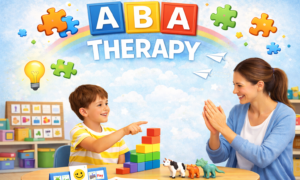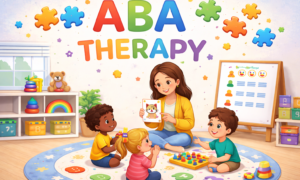Trust is a component of any therapeutic relationship, but building and maintaining trust can be no small feat. Dr. Brett Holeman, certified school psychologist, shares his insight on why trust matters in a successful therapeutic setting – from the perspective of both patient and clinician. He’ll also guide how to promote trust-building behaviors between both parties during therapy sessions.
What Is Trust And Why Is It Important In A Therapeutic Relationship
Trust is a fundamental aspect of any therapeutic relationship, but for individuals seeking help, opening up to another person can be a daunting task. It requires a vulnerability that can only be achieved when clients trust their therapist. Trust allows for a safe space where clients can freely express themselves and feel comfortable sharing their deepest concerns, past traumas, and other sensitive topics. This level of trust is critical because it enables therapists to tailor their approach to meet the needs of their clients. By fostering a relationship built on trust, therapists ensure their clients feel heard, understood, and validated. When trust is established, clients will likely remain engaged in therapy, work collaboratively with their therapist, and make meaningful progress toward their goals.
Characteristics Of A Successful Therapeutic Relationship Based On Mutual Respect And Trust
Dr. Brett Holeman agrees that one of the most important factors in therapeutic success is a strong sense of mutual respect and trust between therapist and client. This dynamic can foster open communication, allow for vulnerability, and create an environment where clients feel safe to explore their deepest thoughts and emotions. When a therapist truly listens to their client’s concerns and validates their experiences, it can create a powerful bond that fuels the therapeutic relationship. On the other hand, a lack of trust and respect can quickly lead to a breakdown in communication and hinder progress towards therapeutic goals. Ultimately, it’s the responsibility of both the therapist and client to work towards establishing a relationship built on these key characteristics to achieve positive outcomes in therapy.
Benefits Of Mutual Trust And Understanding In The Therapeutic Process
Mutual trust and understanding are essential components of the therapeutic process. When a patient feels comfortable enough to reveal their deepest thoughts and emotions, it sets the foundation for a therapeutic relationship built on trust. As the therapist becomes more attuned to the patient’s inner world, they can begin to apply interventions tailored to the patient’s unique needs. Trust and understanding make patients more likely to open up and follow through with the therapist’s recommendations for treatment. It is important to cultivate mutual trust and understanding in the therapeutic process because it promotes healing, fosters mental health, and leads to a more fulfilling life.
Creating And Preserving A Trustful Bond Between Therapist And Patient
To establish a healthy therapist-client relationship, trust is essential. Dr. Brett Holeman explains that trust is based on mutual understanding, respect, and empathy between the two parties. When clients feel heard, understood, and supported by their therapist, they are more likely to open up. Therapists must establish clear boundaries, maintain confidentiality, and communicate honestly with their clients. Building trust takes time and effort, but the more trust a therapist can establish with their client, the more effective the therapy will be. By creating a safe environment, therapists can help their clients develop the tools they need to overcome challenges and achieve their goals.
Reexamining Boundaries To Strengthen The Bond Of Mutual Respect And Trust
In a world that seems to be constantly in flux, it’s more important than ever to reexamine boundaries. Now is the perfect time to focus on strengthening the bond of mutual respect and trust among those around us. We all want to live in a world where everyone is treated with dignity and understanding despite our differences. By taking a closer look at our own personal boundaries and acknowledging that everyone has their own unique point of view, we can work together to promote healthy relationships and a more harmonious community. With a renewed commitment to mutual respect and open communication, we can build bonds that will stand the test of time.
Empathy And Compassion In The Development Of A Secure Environment For Healing
Empathy and compassion have a vital role to play in creating a secure and supportive environment for healing. When individuals feel understood and cared for, they are more likely to open up and share their experiences, leading to better outcomes in therapy. Empathy is putting ourselves in another person’s shoes, which can create a sense of connection and rapport. Compassion involves being kind and understanding towards someone who is suffering. Both empathy and compassion are essential in creating a safe space where individuals feel comfortable enough to explore their emotions and work through their challenges. In this way, empathy and compassion are critical components of healing and growth.
Final Thoughts
Dr. Brett Holeman points out that trust and respect are the foundations of a successful therapeutic relationship. Mutual trust allows clients to open up and be vulnerable in a safe space, while empathy and compassion foster a supportive atmosphere for healing. Building upon this fundamental bond of trust requires intention from both parties, as well as an active effort to reexamine boundaries when needed. Ultimately, when trust can be established, it will allow for greater access to emotional clarity and more profound healing in the therapy process. Beginning with mutual trust is key to unlocking growth potential through therapy.



































